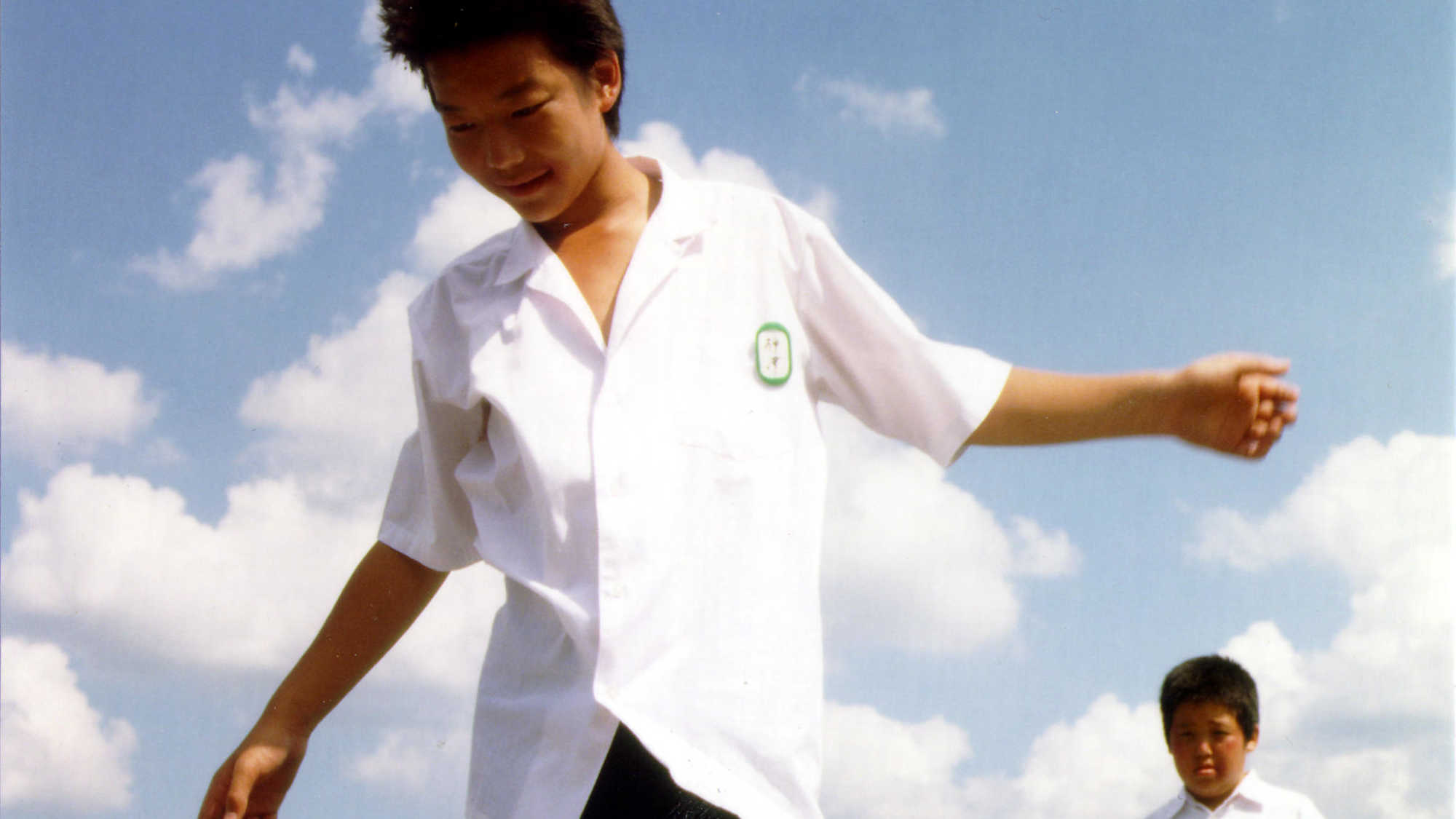
Screened as part of NZIFF 2001
Bad Company 2001
Mabudachi
Set very specifically in a small-town school in 80s rural Japan, Bad Company centres on the intense antagonism between a smart adolescent boy and a shrewd, authoritarian teacher. Though the insecurities and hostilities it evokes so uncannily are probably universally recognisable, I can’t think of another movie that addresses them.
Sadatomo is 14, clever and growinag up restless in the middle of nowhere. He barely communicates with his parents and he feels superior to his dependent, incipiently resentful friends. He is so adept at advising these guys how they might better be themselves that he can’t resist doing it whenever the opportunity arises. He worries though that his readiness to define them signifies a failure to know what to make of himself.
These niggling fears are amplified by the bizarre methods of the teacher Kobayashi who has hung up a ‘humanity index’ in the classroom and divides the class into three categories; delinquents, scum and human beings. Bright enough to despise Kobayashi’s bullying, Sadatomo is too bright – and too self-absorbed – not to be haunted by the notion that he’s a conspicuously deficient human being.
When he and his friends are caught stealing and are forced to submit to parental punishment, Sadatomo’s insolence is so gob-smacking that we may experience a glimmer of sympathy for the teacher. More amazing is the depth of self-loathing revealed in the essay of self-criticism he is required to write in mitigation. When the teacher detects opportunism in Sadatomo’s masterpiece, it becomes increasingly clear that the mind games are out of control.
Bad Company was written and directed by Furumaya Tomoyuki whose exquisite This Window is Yours also expressed adolescent experience – first love – with finesse and fresh insight. He says he was partly motivated to make this film as a response to persistent calls for a return to the disciplinarian methods of his own 80s schooling.
In the amazing Kobayashi, he has created an authority figure who is so incisively, obsessively opposed to his young protagonist’s amoral creative power, that the film can shake him off only by going into overdrive. The strangely grandiose final reel is disappointingly vague about Sadatomo’s moral evolution, but Bad Company remains a striking addition to the cinema’s gallery of portraits of artists as troubled children – and of the demons that beset them. — BG